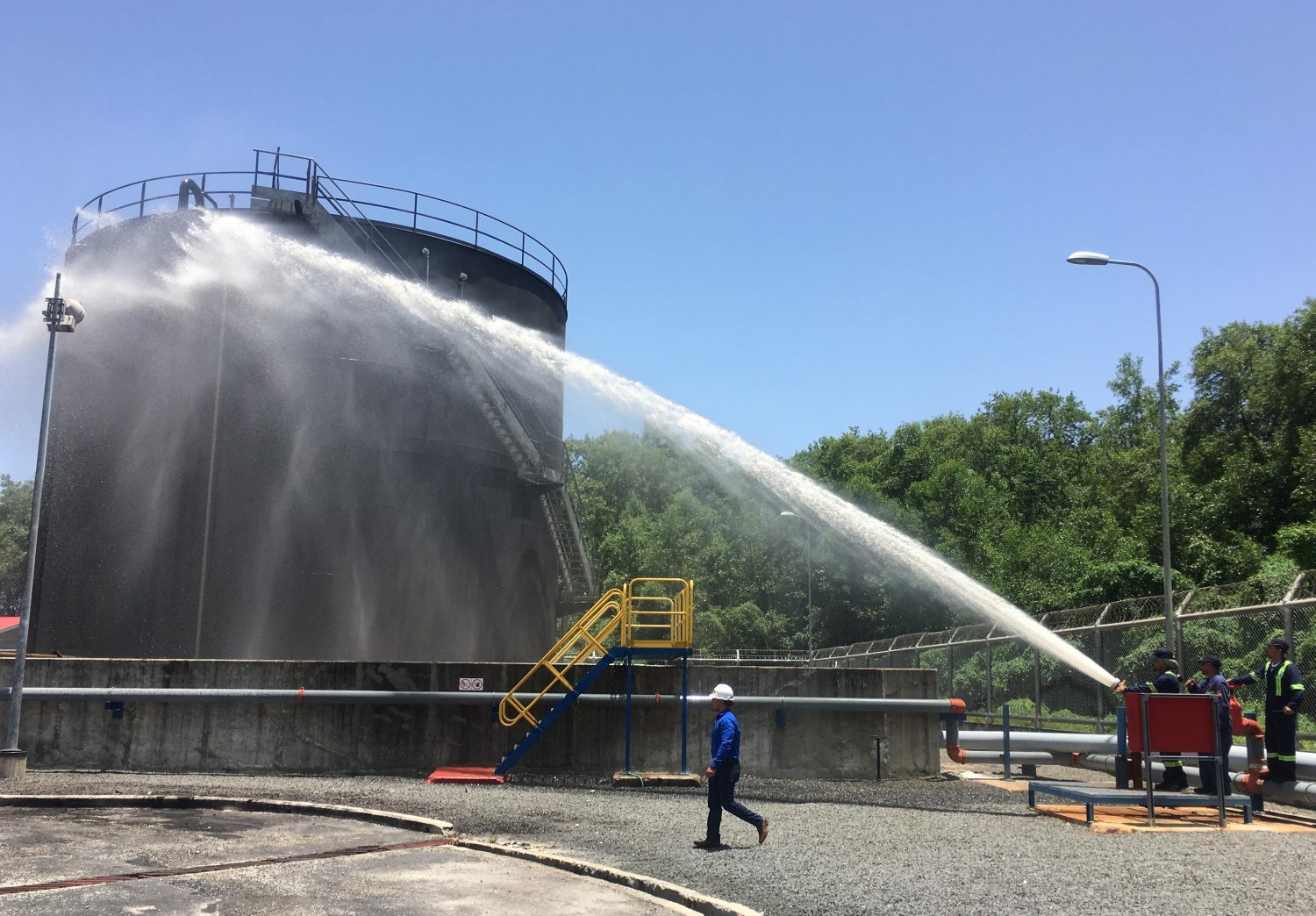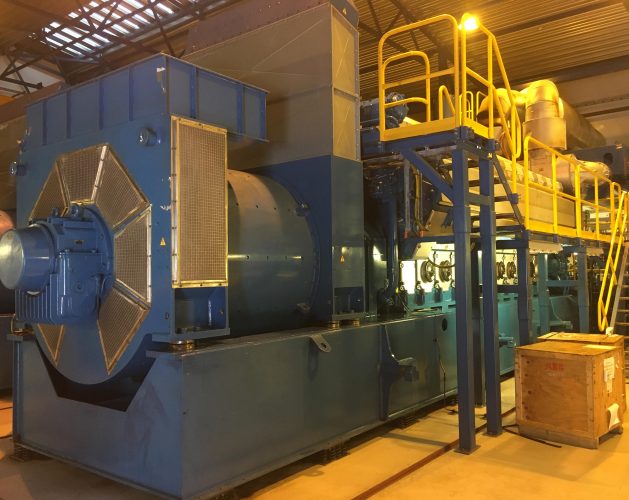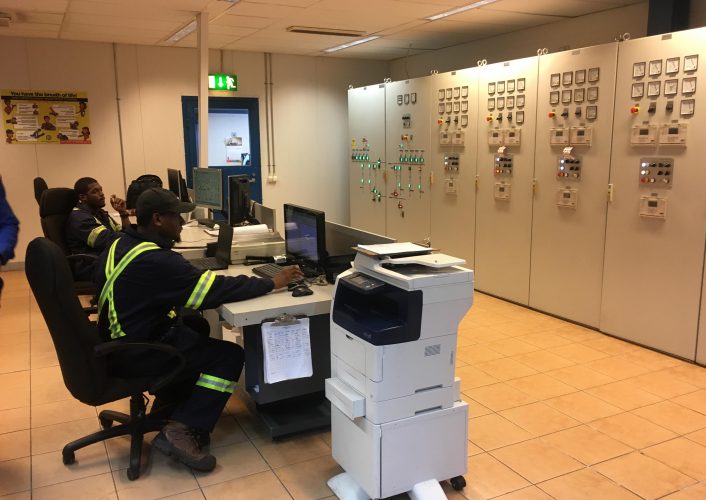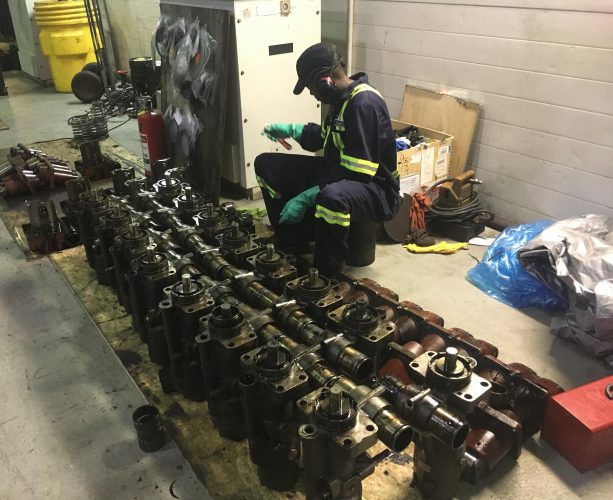Arron Fraser, Chief Executive Officer (CEO) of the state-run Power Producers and Distributors Inc. (PPDI), which manages the Guyana Power and Light company’s power plants, yesterday said that although production is not at full capacity, enough electricity is being generated to supply the grid at peak demand.
Fraser, along with the Chairman of the Board Mark Bender and the Deputy CEO Gary Hall conducted site visits to the operations at the Kingston and Vreed-en-Hoop generating plants for members of the media.
The company is currently maintaining 16 engines that are expected to produce some 104 MW of power across the Garden of Eden, Kingston and Vreed-en-Hoop power plants. However, two engines are currently out of commission as they are undergoing maintenance. Fraser said that even though production is not at full capacity, enough electricity is being generated to supply the grid at peak demand.
When questioned if the company had experienced any major problems with generation, which might be responsible for the spate of blackouts that citizens have been forced to endure over the year, Fraser said no. “There have not been any major issues with the engines. I can tell you that our generators are more available this year…,” he said.
Fraser explained that while they have generated only 375,285 MWh from the start of the year, as compared to 381,347 MWh in 2016, the availability of the engines have increased from 92% last year to 93.4% this year. He also explained that they have also used significantly less Heavy Fuel Oil (HFO) per MWh, with only 55.80 being used this year, as compared to 58.27 last year.
Highlighting that constant maintenance is the key to ensuring that the engines continue running efficiently, Fraser explained that they have maintained the same “strict maintenance schedule” that was inherited from the Wartsila company, but have increased their scope of work.
Fraser also pointed out that the company is currently preparing a strategic plan and will be considering a number of options for producing energy from renewable and clean sources. “The two most significant ones are hydro and associated natural gas once the oil and gas production starts and of course there are other options like solar and wind…,” he explained, while stating that one of the goals of the company is to become an independent power producer.
With respect to the use of natural gas, Fraser said that five of the 16 engines can be converted to use natural gas but it will be expensive. He said that while the company has not done a cost analysis as yet, some four years ago it was done and the price tag to convert a single engine from using HFO to natural gas was some €300,000, which would in the long term save the company money and also complement the government’s green-state initiative.
Fraser also explained that in addition to focusing on the maintenance of the physical infrastructure, PPDI has also been paying attention to its staff and so far has facilitated training in the amount of 1,966 hours.
“Learning is critical and so it facilitates, at least in theory, the better management and operations of the power plants and in this regard we continue to invest in our human resources by both in-house and training by external sources,” he noted, while pointing out that they have added an operations analyst, which he said will greatly assist the company in analysing the data that is provided every day by the plants and making correlations and understanding anteceding conditions.
Since the main objective of the government’s decision to start the company, instead of continue Wartsila’s contract, was to save money, Fraser emphasised that all 137 employees are Guyanese.
He said they are expecting to save some US$2 million annually. He explained that they are saving some US$500,000 per year by not having Wartsila staff responsible for maintenance. He also emphasised that the staff members have all been retained from Wartsila and are capable and competent of doing the jobs themselves, since a lot of the technical workers have at least two decades and more of work experience with Wartsila.
Fraser also said that the company pays heavy attention to safety and even has its own firefighting systems in place.









